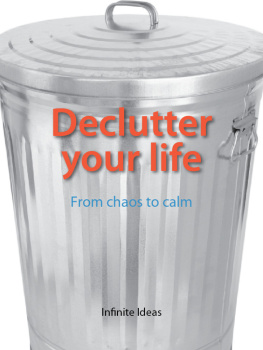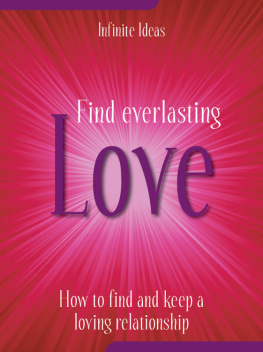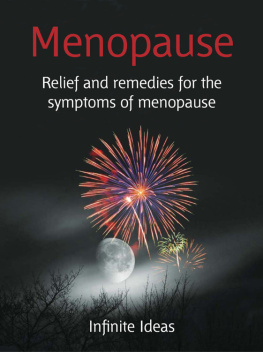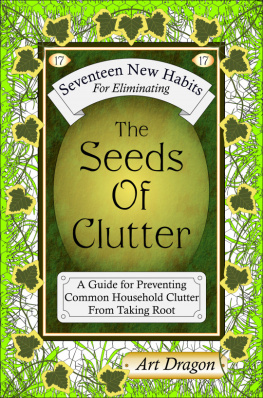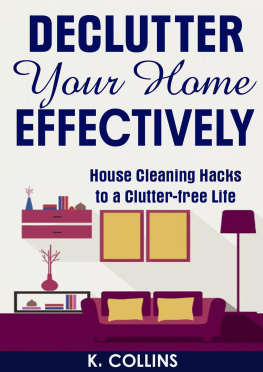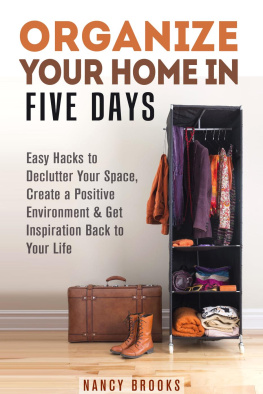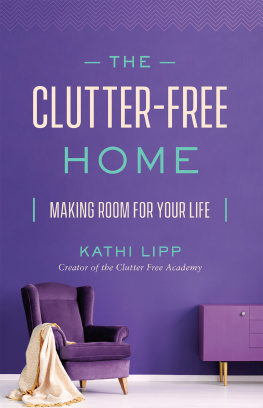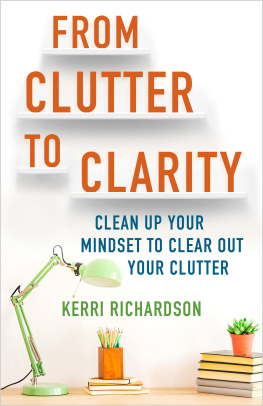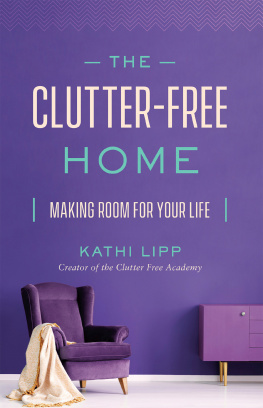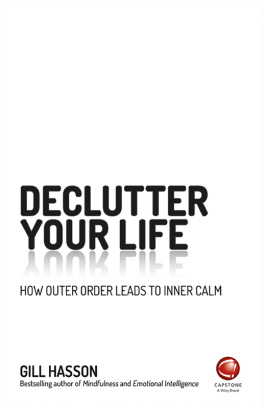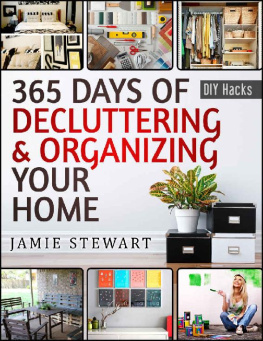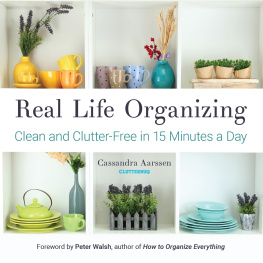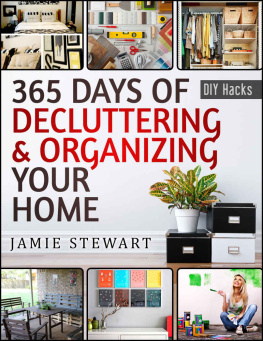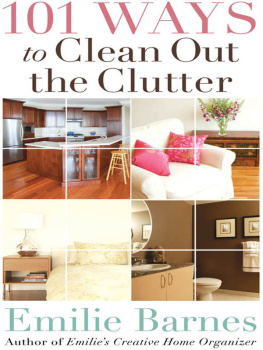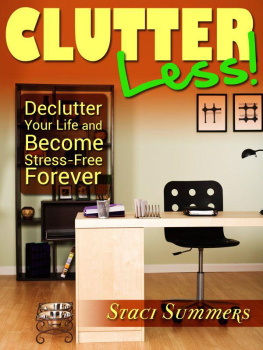Introduction
C lutter can damage your health and affect your wealth. Think Im overstating the case? Heres the thing: everything you own needs to be kept clean or youre breathing in dust and creating an environment loved by icky pests. The more useless things you have, the more useless stuff you have to clean. Clutter also affects you financially because if you dont know what you have because it is hidden in among the clutter, you go out and re-buy it. Plus theres the hidden value in junk (defined as something you dont love or need) thats not in your pocket because you havent gotten round to selling it.
Clutter can also lead to despair. You come home of an evening and instead of feeling like youre home, you feel like youre in a strangers (messy) home because you havent had the courage to make decisions about your things and really put your stamp on your own home. It seems like such a mammoth task that you get exhausted before you even start. Clutter saps energy and makes you feel overwhelmed. But before you hire a skip and chuck everything away, do bear in mind that clutter isnt just having a lot of things.
Many years ago I went to visit an artist friend of mine in a rather lovely apartment block of large studios. As I walked in, my senses were assaulted by a huge riot of colour and, well, stuff. Every wall was lined with shelves, all crammed full of books. In front of the books were small sculptures, interesting objets dart, Moroccan boxes, jars of brushes and pencils. In one corner was a clothes rail rammed full of the beautifully unique dresses she made herself. Next to the rail was a table with her sewing machine on it and around the base of the table were baskets filled with spare cloth, ribbons and sewing miscellany.
As she popped the kettle on, I asked her where she slept as it was just a large one room studio with a toilet and bathroom off it and a kitchenette in the corner. She walked across to a panel on the side of her crammed shelves and pulled down a bed with its bedding on it. I sat on it and it felt very sturdy despite its foldaway nature. She pushed it back up and got me to take a seat on the armchairs she had in one section where the light was best.
There wasnt a square inch of that studio that wasnt being used to the extreme in serving her and her life. To the untrained eye, walking into her studio, youd think it was the epitome of clutter with things everywhere but, in fact, her living space was the exact opposite of clutter as she needed and, importantly, used everything in her space. She could get to everything easily to clean it and she found looking at her things inspiring and uplifting.
Clutter is defined by how you feel about it. Another person could have the exact same number of things in his home and feel weighted down and miserable about it. This is because our things exert an influence on us. They tell the world who we are and they reflect the decisions weve made about our lives. If you feel the weight of clutter upon you, it isnt the physical things that are weighing you down, it is the decisions you have to make about who you are and what you want in your life.
And lets be clear about this. Every single thing you own is a decision youve made and so getting rid of clutter is not about sourcing bags and boxes and arranging sales and giveaways or even making a room look nice, it is about making decisions. Lots and lots of decisions. That can be very stressful. The average wedding requires around a thousand decisions to be made and we all know how stressful arranging a wedding can be. So how much more stressful are the many more youll have to make on your decluttering journey?
Okay, does this make you feel ready to abandon all hope and go back to bed without touching a thing? Breathe, everything is going to be fine. No matter how bad your clutter is, take heart from the fact that YOU created it so YOU can get rid of it. The reason clutter accumulates is from a fear of making a mistake, a fear of losing something that might prove useful, but when you come to realize that youre the boss and you can forgive yourself for making mistakes then you can get on and do something about creating order.
Clutter also accrues when you get stuck in the past and try to keep memories alive by holding onto things. Remember that we change over time and so things that were absolutely vital to us a decade ago will not necessarily be so today. If youre looking to create positive changes in your life, you can be held back by things that remind you of what you no longer want to have in your life.
Make the commitment today to tackle your clutter, make those vital decisions and unlock the brilliant new stress-free life you want and deserve.
9. There be gold in them there hills
H ere is a great argument for not having clutter in the first place: things depreciate. The second you drive a car off the lot, its price is affected. The same is true for just about everything you have in your home, apart from some highly desirable antiques, artwork or wines. Since not all of us have a Van Gogh in the attic, we have no excuse for keeping stuff that we no longer use or even, in some cases, like. While you will hardly get a fraction of what you paid for it, your things can raise money for you.
I dont keep paperbacks after Ive read them. I know from long experience that I will never re-read the latest literary sensation: once Ive read it, theres no point at all keeping it. I keep reference books and I keep valuable first editions and certain hardback classics. This means I have very few books but I am an avid reader. I have a kindle for more transient reading and for reading newspapers and magazines. I like the thought that my possessions are so few that I could move quite easily and I like that all the things I do keep are worth a bit of money and so could be sold if I ever fell on hard times.
If you are a book hoarder, have a think about this logically. Will you re-read all those paperbacks? Have you read all of them? If you havent, stop buying new books until you catch up with your reading. I am not advocating getting rid of sentimental things like the love poetry book your husband bought you on your first wedding anniversary or anything, just that the latest horror or crime fiction thriller (unless it is in hardback from a collectible author) wont be re-read by you within your lifetime. Why keep it? Is it to let others know what your tastes are? You can do that by telling them and chatting about the books themselves, you dont need to prove you like that author.
As I said earlier, you do not get what you paid for your things. I have spent hundreds of pounds on books and when I came to sell them, I got about 150 for the lot. You have to accept that you will not get much for stuff that you have cherished for years so only sell that which you are prepared to get rid of, no matter what you get for it.
If you have an awful lot of clutter, you might want to consider having a yard sale or opening your house up for a living room sale. Invite a few neighbours or friends to do it with you so you get support and your buyers have more choice of things. Price things extremely competitively and be prepared for haggling and doing deals. Your aim is not to make loads of money but to get rid of your stuff.
Online selling can also yield very good results but you do have the added hassle of photographing and describing your items so it is a relief that some companies have started up who will act as online sales agents for you they will take your stuff, photograph and list it and then give you a percentage of what they get for it.
It is also good to look for specialist buyers online. If you have items that collectors might be interested in, contact anyone running a fan site and see if they might be interested. Otherwise you can also try your social media networks to see if friends might be interested in buying your items.
Next page
